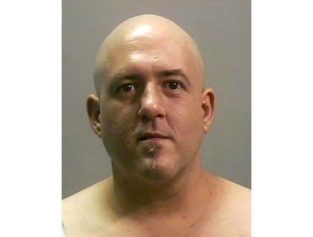Kristen McQueary of the Chicago Tribune Wants Hurricane Katrina to Wipe Out the Unions, Rebuild Public Schools Under Neoliberal Policies
In this season of Black suffering — which in America has been a season lasting hundreds of years — conservative politicians and commentators are using their white privilege to make light of Black lives and dismiss racial injustice. Some are entertaining themselves at our expense. On the 10th anniversary of Hurricane Katrina, one commentator thought it was a good idea to advocate for the genocide of Black people in order to rebuild cities and enact conservative policies of union busting and school reform.
Kristen McQueary, a member of the Chicago Tribune editorial board, wrote an op-ed in the Aug. 13 edition of that paper, in which she wished Chicago could face the same storm that wiped away New Orleans.
“Envy isn’t a rational response to the upcoming 10-year anniversary of Hurricane Katrina. But with Aug. 29 fast approaching and New Orleans Mayor Mitch Landrieu making media rounds…, I find myself wishing for a storm in Chicago — an unpredictable, haughty, devastating swirl of fury. A dramatic levee break. Geysers bursting through manhole covers. A sleeping city, forced onto the rooftops,” McQueary said. “That’s what it took to hit the reset button in New Orleans. Chaos. Tragedy. Heartbreak,” she added.
“Residents overthrew a corrupt government. A new mayor slashed the city budget, forced unpaid furloughs, cut positions, detonated labor contracts. New Orleans’ City Hall got leaner and more efficient. Dilapidated buildings were torn down. Public housing got rebuilt. Governments were consolidated,” the writer said.
“An underperforming public school system saw a complete makeover. A new schools chief, Paul Vallas, designed a school system with the flexibility of an entrepreneur. No restrictive mandates from the city or the state. No demands from teacher unions to abide. Instead, he created the nation’s first free-market education system,” McQueary wrote.
“Hurricane Katrina gave a great American city a rebirth….That’s why I find myself praying for a storm. OK, a figurative storm, something that will prompt a rebirth in Chicago. I can relate, metaphorically, to the residents of New Orleans climbing onto their rooftops and begging for help and waving their arms and lurching toward rescue helicopters,” she added.
Reactions from the Twiterverse were swift and decisive:
“Allow me to join the chorus of those wondering what the hell @StatehouseChick was thinking in writing this rubbish. http://t.co/mHBwwia1uN“
— Jamil Smith (@JamilSmith) August 14, 2015
“To demean the lives lost in the flood of Katrina to promote a political view is blasphemous evil. Disgrace http://t.co/Z2URtGhSv7″
— Wendell Pierce (@WendellPierce) August 14, 2015
“at least it’s an honest endorsement of disaster capitalism enabled displacement of black populations from urban cores http://t.co/2iV9AOi5zm“
— Julia Carrie Wong (@juliacarriew) August 14, 2015
“Kristen McQueary claims envy, because one of the greatest disasters in history allowed NO to bust teachers’ unions and overhaul city hall.”
— Theresa Muir (@theresasmets) August 14, 2015
Meanwhile, McQueary apparently has attempted to backtrack her comments:
“If you read the piece, it’s about finances and government. I would never diminish the tragedy of thousands of lives lost.”
— Kristen McQueary (@StatehouseChick) August 13, 2015
Writing for Salon, Scott Eric Kaufmann raised the issue that McQueary believes “the operative emotion one should feel as we approach the tenth anniversary of Katrina isn’t despair over the thousands of easily preventable deaths, nor anguish at the lives and communities torn about, but envy because one of the greatest natural disasters in American history allowed the city to bust the teachers’ unions and overhaul city hall.” Calling it “the toxic logic of white privilege,” Kaufmann added that McQueary conveniently disregarded the act that 1,833 people, mostly Black, died in order to bring about this civic rebirth, as we witnessed old communities destroyed. He suggests McQueary should have eaten her Caprese salad and called it a day.
Adam Johnson goes a step further in AlterNet by comparing McQueary to Donald Trump, as an example of “what the far corporate right really thinks when it’s not speaking in code and PR double speak.” Johnson argues that this type of sentiment, that Katrina was a biblical flood that washed away liberal excess, is common among Republicans and corporate Democrats. He even points out that President Barack Obama’s education secretary said Katrina was “the best thing that happened to the education system in New Orleans,” while the New York Times wrote that New Orleans foodie culture was better after the hurricane. And before the bodies of the dead could be identified, the National Review called the storm “a golden opportunity” for a massive corporate overhaul of the city’s public school.
“For these people, it is not a thought experiment. It’s not rhetorical. It’s real,” Johnson decried. “They truly believe largely-black, union-friendly cities would be better off in the long run handing over the reins of their local governments to technocratic, largely white neoliberal systems. To them, the tragedy of Katrina wasn’t the mass displacement and death of thousands, it was that it didn’t happen soon enough,” he wrote.
As offensive as her words were, McQueary’s commentary should not shock, but rather should educate all of us on the white privilege in its raw, unadulterated form — the mindset of colonial domination that enslaved and murdered millions of people across the globe. And this is what happens when no one is in the room to speak up, which underscores the importance of independent Black media in allowing us to speak with our own voices and with dignity. As this country is forced to scrutinize white supremacy, systemic racism and institutionalized violence against marginalized people — and the victims realize they are in no longer in a position to accept it — expect more of the same from people such as Kristen McQueary.


